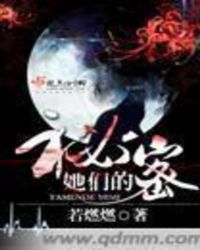LETTER 48
您可以在百度里搜索“The Works of Charles and Mary Lamb — Volume 5 艾草文学(www.321553.xyz)”查找最新章节!
LETTER 48
CHARLES LAMB TO THOMAS MANNING
Dec. 28th, 1799.
Dear Manning,—Having suspended my correspondence a decent interval, as knowing that even good things may be taken to satiety, a wish cannot but recur to learn whether you be still well and happy. Do all things continue in the state I left them in Cambridge?
Do your night parties still flourish? and do you continue to bewilder your company with your thousand faces running down through all the keys of idiotism (like Lloyd over his perpetual harpsicord), from the smile and the glimmer of half-sense and quarter-sense to the grin and hanging lip of Betty Foy's own Johnny? And does the face-dissolving curfew sound at twelve? How unlike the great originals were your petty terrors in the postscript, not fearful enough to make a fairy shudder, or a Lilliputian fine lady, eight months full of child, miscarry. Yet one of them, which had more beast than the rest, I thought faintly resembled one of your brutifications. But, seriously, I long to see your own honest Manning-face again. I did not mean a pun,—your man's face, you will be apt to say, I know your wicked will to pun. I cannot now write to Lloyd and you too, so you must convey as much interesting intelligence as this may contain, or be thought to contain, to him and Sophia, with my dearest love and remembrances.
By the by, I think you and Sophia both incorrect with regard to the title of the play. Allowing your objection (which is not necessary, as pride may be, and is in real life often, cured by misfortunes not directly originating from its own acts, as Jeremy Taylor will tell you a naughty desire is sometimes sent to cure it—I know you read these practical divines). But allowing your objection, does not the betraying of his father's secret directly spring from pride?—from the pride of wine and a full heart, and a proud over-stepping of the ordinary rules of morality, and contempt of the prejudices of mankind, which are not to bind superior souls—"as trust in the matter of secret all ties of blood, &c., &c., keeping of promises, the feeble mind's religion, binding our morning knowledge to the performance of what last night's ignorance spake"—does he not prate, that "Great Spirits" must do more than die for their friend—does not the pride of wine incite him to display some evidence of friendship, which its own irregularity shall make great? This I know, that I meant his punishment not alone to be a cure for his daily and habitual pride, but the direct consequence and appropriate punishment of a particular act of pride.
If you do not understand it so, it is my fault in not explaining my meaning.
I have not seen Coleridge since, and scarcely expect to see him,—perhaps he has been at Cambridge. I dined with him in town and breakfasted with him and Priscilla, who you may tell Charles has promised to come and see me when she returns [to] Clapham. I will write to Charles on Monday.
Need I turn over to blot a fresh clean half-sheet? merely to say, what I hope you are sure of without my repeating it, that I would have you consider me, dear Manning, Your sincere friend,
C. LAMB.
What is your proper address?
["Betty Foy's own Johnny"—"The Idiot Boy," in the Lyrical Ballads.
"In the postscript." A reference presumably to some drawings of faces in one of Manning's letters.
"The title of the play." Writing to Lamb on December 15, 1799, Manning had said: "I had some conversation the other day with Sophia concerning your tragedy; and she made some very sensible observations (as I thought) with respect to the unfitness of its title, 'The Folly,' whose consequences humble the pride and ambition of John's heart, does not originate in the workings of those passions, but from an underpart in his character, and as it were accidentally, viz., from the ebullitions of a drunken mind and from a rash confidence."
"You will understand what I mean, without my explaining myself any further. God bless you, and keep you from all evil things, that walk upon the face of the earth—I mean nightmares, hobgoblins and spectres."
Lamb refers in this letter particularly to Act III. of his play. "I have not seen Coleridge since." Since when is not clear. Possibly Coleridge had been at Cambridge when Lamb was there.] The Works of Charles and Mary Lamb — Volume 5



